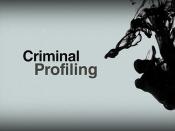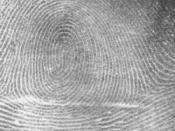FORENSIC PSYCHOLOGY
By
Forensic Psychology is the application of psychology to the criminal justice system.
Many people confuse Forensic Psychology with forensic science. Although the two are closely
related, there are many differences. The primary difference is that forensic psychologists delve
into the vast psychological perspectives and apply them to criminal justice system. On the other
hand, forensic psychologists frequently deal with legal issues, such as public policies, new laws,
competency, and also whether a defendant was insane at the time a crime occurred. All of these
issues weave together psychology and law topics and are essential to the discipline of Forensic
Psychology. Forensic Psychology knowledge is used in various forms, such as in treating
mentally ill offenders, consulting with attorneys (e.g., on picking a jury), analyzing a criminal's
mind and intent, and practicing within the civil arena.
Individuals interested in pursuing a Forensic Psychology career would have take psychology
and criminal justice courses at the core of their academic studies.
There is a very limited number
of academic institutions that specifically offer a Forensic Psychology degree. Clinical, social,
cognitive, criminal investigative, and developmental psychology also help to prepare one for this
speciality.
A forensic psychologist may chose to solely focus his/her career on research, ranging anywhere
from examination of eyewitness testimony to learning how to improve interrogation methods.
Another form of Forensic Psychology work is public policy, in which researchers can help in the
design of correctional facilities and prisons. More generally, Forensic Psychology covers
territory between the traditional options of criminal justice (i.e., academic training, law
enforcement, and corrections).
There are many things you can do in the field of Forensic Psychology. Here are some
examples of interesting areas:
Clinical-Forensic Psychology
Clinical-forensic psychology is the subfield that most people are familiar with, even though they
aren't even aware...


